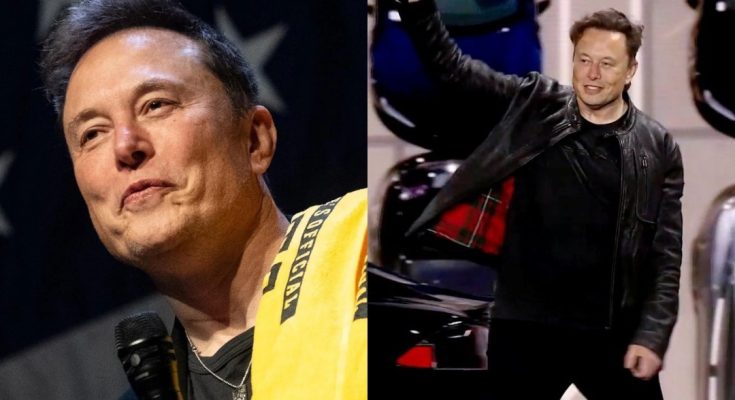In a dramatic development that could potentially disrupt the global electric vehicle sector, Elon Musk is allegedly threatening to depart from Tesla and establish a rival electric vehicle firm unless the company’s board of directors approves an extraordinary compensation package of $150 billion.
This ultimatum has reverberated through financial markets, leaving investors, regulators, and industry experts astonished by both the magnitude of the request and the possible implications for Tesla’s future. Musk’s actions highlight his increasing dissatisfaction with Tesla’s governance and his persistent ambition to gain greater control over the company’s technological direction.
This demand arises amidst escalating corporate challenges at Tesla, as the company experienced a 13 percent decline in vehicle sales during the first quarter of 2025, continuing a downward trend that began in 2024. This represents Tesla’s first annual sales decrease, raising concerns about the sustainability of its product strategy.
Once a trailblazer in the electric vehicle market, Tesla now confronts heightened competition from traditional automakers and emerging Chinese companies, while facing growing internal instability regarding its leadership and brand strategy.
At the heart of the controversy is Musk himself, whose increasingly divisive political views—especially his involvement with the Trump administration—and unpredictable public conduct have estranged both investors and consumers. Nevertheless, amid this chaos, Musk has chosen to utilize his celebrity status and pivotal position at Tesla to negotiate what could become the largest executive compensation package in corporate history.
Insiders privy to the ongoing discussions reveal that Musk is urging Tesla’s board to sanction a new stock-based compensation plan estimated at around $150 billion. This proposed package would supersede the annulled 2018 agreement, which was originally valued at $56 billion and has since escalated to over $98 billion due to Tesla’s previous stock performance.
This earlier deal was invalidated by Delaware Judge Kathleen McCormick, who criticized Tesla’s board as being “supine servants” to Musk and characterized the negotiation process as a “sham.” In spite of this judicial setback, Musk has intensified his efforts, cautioning that without a new, even more advantageous compensation arrangement, he will start reallocating Tesla’s AI and robotics initiatives to his other ventures, including Xavi and potentially a new electric vehicle startup that he would exclusively control.
The consequences are significant: Musk is the most prominent figure associated with Tesla, and his exit could lead to a crisis in investor confidence, potentially resulting in a collapse of the company’s already fragile stock valuation. The board has responded with caution. Chairwoman Robyn Denholm and board member Kathleen Wilson-Thompson have established a special two-person compensation committee to assess Musk’s requests.
However, many perceive their ability to resist as limited, especially considering Denholm’s substantial financial benefits from Tesla stock—over $530 million since her appointment to the board in 2018. In the last six months alone, she has sold nearly $200 million in shares, raising concerns about her motivations and dedication to Tesla’s long-term governance.
Tesla’s board is currently engaged in a delicate balancing act: satisfy Musk with an unprecedented compensation package and risk public, legal, and shareholder backlash, or refuse his demands and potentially lose the key figure most synonymous with Tesla’s innovation and public persona.
The volatility of this situation is significantly heightened by the actual financial implications of Musk’s proposed package. In addition to the prominent $150 billion figure, Tesla must also consider over $50 billion in expenses on its balance sheet. Furthermore, Musk would incur a 57 percent tax rate on the realized value of the stock options, resulting in personal tax liabilities exceeding $28 billion.
Collectively, the corporate and tax ramifications elevate the total financial burden of the deal to unprecedented levels, potentially jeopardizing Tesla’s cash flow and investor strategies for years to come. Compounding the situation is Musk’s implicit threat to initiate a new venture—establishing a competing electric vehicle empire independent of Tesla. Given his substantial financial resources, engineering expertise, and a devoted global following, such an endeavor is within the realm of possibility.
It could even mirror the initial dynamics of Tesla, which emerged as a disruptor in a stagnant automotive industry. Musk has already demonstrated his ability to create entire industries from the ground up through ventures like SpaceX and Neural ink. A fresh electric vehicle startup, unencumbered by legacy issues and board oversight, could satisfy his ambition for complete control and unrestricted innovation.
From a legal standpoint, Tesla’s board is required to take into account the ruling of the Delaware court. Any new compensation package must go through a significantly more transparent and independent approval process to prevent another legal challenge. This necessitates that the board consults independent advisors, secures shareholder approval, and offers a public rationale for the amount and structure of any compensation awarded to Musk.
Failing to do so could lead to lawsuits from institutional investors or increased regulatory scrutiny from the SEC. The challenge Tesla faces transcends a mere boardroom issue—it serves as a litmus test for the limits of modern capitalism. Should the company accept the $150 billion package, it would establish a precedent that could disrupt compensation standards across various industries. Conversely, if it declines and Musk departs, it risks fracturing one of the most iconic brands of the 21st century.
Ultimately, the forthcoming weeks will reveal whether Tesla continues to be Musk’s flagship enterprise or merely another entry in his array of ventures. At this moment, one fact is evident: the future of Tesla—and potentially the entire electric vehicle movement—may depend on a singular figure: $150,000,000,000.



